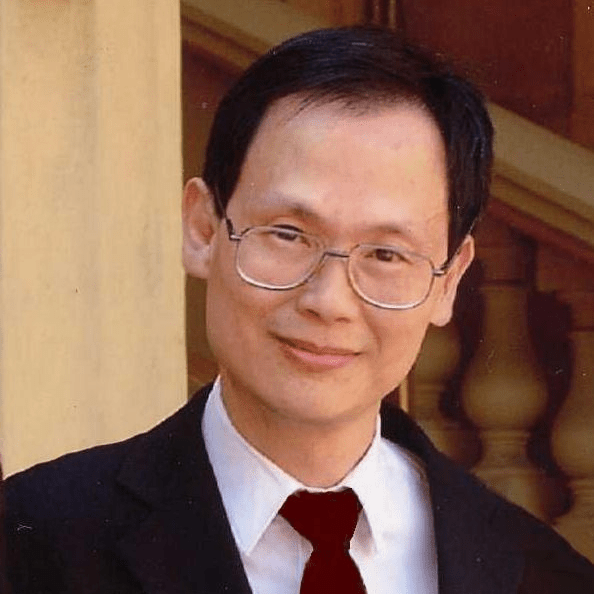
Prof. Alexandre Dolgui
Professor of Industrial Engineering, IMT Atlantique, France
Dr. Alexandre Dolgui is an IISE Fellow, Distinguished Professor, and the Head of Automation, Production and Computer Sciences Department at the IMT Atlantique, campus in Nantes, France. His research focuses on manufacturing line design, production planning and supply chain optimization. His main results are based on the exact mathematical programming methods and their intelligent coupling with heuristics and metaheuristics algorithms to solve corresponding combinatorial optiisation problems under deterministic and stochastic statements. He is the co-author of 5 books, the co-editor of 28 books or conference proceedings, the author of over 300 refereed papers in international journalq. He is the Editor-in-Chief of the International Journal of Production Research, an Area Editor of Computers & Industrial Engineering. He is Member of the Editorial Boards for 28 other journals, including the International Journal of Production Economics, an ActiveFellow of the European Academy for Industrial Management, Member of the Board of the International Foundation for Production Research, former Chair of IFAC TC 5.2 Manufacturing Modelling for Management and Control (2011-2017, currently a vice chair), Member of IFIP WG 5.7Advances in Production Management Systems, IEEE System Council Analytics and Risk Technical Committee. Dr A. Dolgui has been chair of International Program Committees or Keynote speaker for a large number of leading international conferences in our domain
Replenishment planning and inventory control under lead-time uncertainties in assembly and disassembly systems: cutting edge results and new challenges
The definition of lead-time refers to the amount of time that elapses between the placement of an order and the receipt of the corresponding products or components. The planned lead time is a key parameter of production control and replenishment management. In the conditions of uncertainty, the calculation of planned lead times is a crucial problem. Uncertain lead-times can lead to higher inventory costs, as companies may need to hold more stock to reduce the effects of uncertainty and meet customer demand. They can also cause higher production costs and make companies less competitive. Especially, the problem of replenishment planning and inventory control under uncertainty of lead times is critical in assembly and disassembly environments, because interdependency of different decisions and inventories.
In literature, most papers examine stochastic demand processes where order lead times are constant. In practice, manufacturing firms use inventory management software, especially MRP, which ignored lead time uncertainty. Nevertheless, often lead time fluctuations strongly degrade tools performance and cause high production costs, just as demand uncertainty does. Nowadays, this gap needs to be filled in order to respond to companies having non-deterministic lead-times constraints. This talk reviews the literature on replenishment planning tools under uncertainty of lead times for assembly and disassembly systems of last 20 years. The state of the art is presented, major approaches are explained and new challenges are pointed out taking into account the current unstable market.
.

Prof. Duc Truong Pham
Professor of Engineering. University of Birmingham, UK
Duc Truong Pham’s research covers the fields of mechanical, manufacturing, computer and systems engineering. His academic output includes more than 600 technical papers and 17 books. He has supervised over 100 PhD theses to completion. He has won in excess of £30M in external research grants and contracts. In addition to pursuing and leading research, he has acted as a consultant to several major companies and has been active with knowledge transfer to industry, applying the results of his work to help multinational companies and SMEs generate wealth and create and safeguard jobs. He has lectured extensively abroad on his research and has delivered more than fifty keynote presentations at international conferences. He was Professeur Invité at École Centrale de Paris, Consulting Professor at HUST (China), Erskine Visiting Fellow at the University of Canterbury (New Zealand), Visiting Professor at the Université Paul Verlaine (France), Visiting Professor at King Saud University (Saudi Arabia), Strategic Scientist at Wuhan University of Technology and Honorary Professor at Xi’an Jiaotong University (China). He has received several prizes including the Sir Joseph Whitworth prize from the Institution of Mechanical Engineers in 1996 and 2000 and the Institution’s Thomas Stephens Group Prize in 2001 and 2003 and Donald Julius Groen Prize in 2004, and the 5th ICMR Best Paper Prize in 2007. He is also a recipient of a Lifetime Achievement Award (2016, World Automation Congress) and a Distinguished International Academic Contribution Award (IEEE SMC Society TC on Enterprise Info Sys and IFIP TC8 WG8.9, 2017). He is a Fellow of the Royal Academy of Engineering, Learned Society of Wales, Society of Manufacturing Engineers, Institution of Engineering and Technology, and Institution of Mechanical Engineers. He was made an OBE in the 2003 New Year’s Honours List for his services to Engineering.
Intelligent Optimisation – The Bees Algorithm Approach
The Bees Algorithm is a powerful swarm-based intelligent optimisation metaheuristic inspired by the foraging behaviour of honey bees. The algorithm is conceptually elegant and very easy to apply. All it needs to solve an optimisation problem is a means to evaluate the quality of potential solutions. This is the reason why, since the algorithm was first published in 2005, it has attracted users from virtually all fields of engineering and natural, physical, medical and social sciences. This presentation will introduce the algorithm and its main variants developed over the years including the latest incarnation which is the simplest version to date. Unlike its predecessors which have six or seven user-selected parameters, the new version involves just two parameters and thus is even easier to implement than the original algorithm. The application of the different renditions of the Bees Algorithm to intelligent manufacturing and automation problems such as real-time 3D object recognition, printed circuit board assembly machine control, parallel production machine scheduling, robotic disassembly sequence planning and line balancing will be reviewed to demonstrate its versatility, efficiency and effectiveness. The aim of the presentation is to encourage further adoption of the algorithm and its development by engineers and researchers across the world to realise high-performance systems in the age of Industry 4.0 and beyond.

Dr.Mengchu Zhou
Professor of Electrical and Computer Engineering. New Jersey Institute of Technology Newark, USA
Dr. MengChu Zhou received his B.S. degree in Control Engineering from Nanjing University of Science and Technology, Nanjing, China in 1983, M.S. degree in Automatic Control from Beijing Institute of Technology, Beijing, China in 1986, and Ph. D. degree in Computer and Systems Engineering from Rensselaer Polytechnic Institute, Troy, NY in 1990. He joined New Jersey Institute of Technology (NJIT), Newark, NJ in 1990, and is a Distinguished Professor of Electrical and Computer Engineering. His research interests are in intelligent automation, AI, Petri nets, robotics, Internet of Things, big data, cloud/edge computing. He has over 1000 publications including 14 books, over 700 journal papers (over 600 in IEEE transactions), and 32 book-chapters. He holds 31 patents and several pending ones. His recently co-authored book is Sustainable Manufacturing Systems: An Energy Perspective, IEEE Press/Wiley, Hoboken, Hoboken, NJ, 2022 (with L. Li). He is the founding Editor of IEEE Press Book Series on Systems Science and Engineering. He served as Editor-in-Chief of IEEE/CAA Journal of Automatica Sinica and Associate Editor of many IEEE Transactions. He is presently Associate Editor of IEEE Transactions on Intelligent Transportation Systems, IEEE Internet of Things Journal, and IEEE Transactions on Systems, Man, and Cybernetics: Systems. He is founding Chair/Co-chair of Technical Committee on AI-based Smart Manufacturing Systems and Technical Committee on Humanized Crowd Computing of IEEE Systems, Man, and Cybernetics Society, Technical Committee on Semiconductor Manufacturing Automation and Technical Committee on Digital Manufacturing. He was General Chair/Program Chait of many international conferences. He is a recipient of Excellence in Research Prize and Medal from NJIT, Humboldt Research Award for US Senior Scientists from Alexander von Humboldt Foundation, and Franklin V. Taylor Memorial Award and the Norbert Wiener Award from IEEE Systems, Man, and Cybernetics Society, and Edison Patent Award from the Research & Development Council of New Jersey. He has been among most highly cited scholars since 2012 and ranked top one in the field of engineering worldwide in 2012 by Web of Science. He has over 56,000 GoogleScholar citations with h-index 120. He was ranked #89 in the world and #58 in the United States among the 2022 Top 1000 Scientists in Computer Science in the World, Research.com. He is Fellow of IEEE, International Federation of Automatic Control (IFAC), American Association for the Advancement of Science (AAAS), Chinese Association of Automation (CAA) and National Academy of Inventors (NAI).
Internet of Behaviors
In his blogs of 2012, Dr. Gote Nyman coined Internet of Behaviors (IoB). In his idea, people’s behaviors are very good predictors of their needs, and hence technology companies can network human behaviors and construct behavior-based systems to deliver more timely, responsive, and intelligent services with privacy protection. Built on his core idea of IoB, this talk comprehensively introduce the IoB concept, essential features, architecture, enabling technologies, applications, and open research issues. We first give a formal definition and classification of IoB and reveal its fundamental difference from Internet of Things (IoT). Then, we propose a five-layer IoB architecture (consisting of behavior perception, behavior networking, behavior computing, service provision, and security/privacy) and provide the in-depth analysis of IoB enabling technologies. Particularly, we discuss functional requirements and possible fields of an IoB address, present the networking and maintenance approaches to behaviors, explore four important implications of behavior computing, i.e., intention inference, behavior derivation, behavior programming, and behavior-chain optimization, as well as give a decentralized privacy-protection solution to Dr. Nyman’s behavior-identity separation idea. Next, we present potential IoB applications in smart home/transportation/healthcare/business, and human-robot interaction. Finally, we reveal open research issues.

Prof. Abdelaziz BOURAS
Professor of Computer Science, Qatar University, Qatar
Abdelaziz Bouras is Full Professor at Qatar University (Department of Computer Science and Engineering, College of Engineering) with a secondary appointment as Manager at the Office of Research Support, to ensure the achievement of Qatar University research vision, mission and strategic goals. His current research interests focus on Software Engineering, Architectures for Lifecycle Engineering and Information Modeling, including intelligent products, digital preservation, data analytics and blockchains for Enterprise Information Systems and Supply Chains. He managed numerous international projects related to these fields in EU and in the Middle-East and co-supervised more than thirty PhD studies. Abdelaziz has chaired numerous International Program Committees and is currently on the Scientific Board of several International Journals. He also founded two International Journals in his domain.
Abdelaziz is currently the Chair of the IFIP WG5.1 Working Group on ICT Lifecycle management and is regularly invited to act as an expert for research/education agencies (NSERC/FNRT, ANR/AERES, ANVUR, etc) and for a number of universities. His accomplishments have been recognized with several international awards. He is a holder of a Honoris Causa PhD degree in Science, and PhD and Habilitation in Computer Science from Université Claude Bernard of Lyon – France, and the ICT Chair position of the MICT Ministry of ICT until Sept. 2016. He acted successively as deputy Director of PRISMA and DISP “Information and Decision Systems” research laboratories, as Director of the “Innovation and Knowledge Transfer Center” for university/industry collaboration at Université Lumière of Lyon, and managed for the European Commission several Erasmus+ programs.
Blockchain-based Access Control for Secure Smart Enterprise Information Systems
Blockchain Driven Supply Chains and Enterprise Information Platforms are considered nowadays the go-to solution for developing critical data exchange solutions. They establish common ground to provide solutions and best practices in the field, while tackling the challenges faced when integrating blockchain in supply chain ones. In this talk we address the current gaps and propose an end-to-end solution for managing business workflows using blockchain smart contracts (created through NLP based extracted information) and propose a proof of concept of a manufacturing supply chain scenario integration between Odoo (supply chain processes) and Hyperledger Fabric (blockchain development platform). We demonstrate how Odoo workflows can be optimized, secured, and made trustworthy using smart contracts, and highlight the impact of such solutions on current and future applications within the Industry 4.0 context where data is an abundant critical resource. We also highlight an anomaly detection framework.